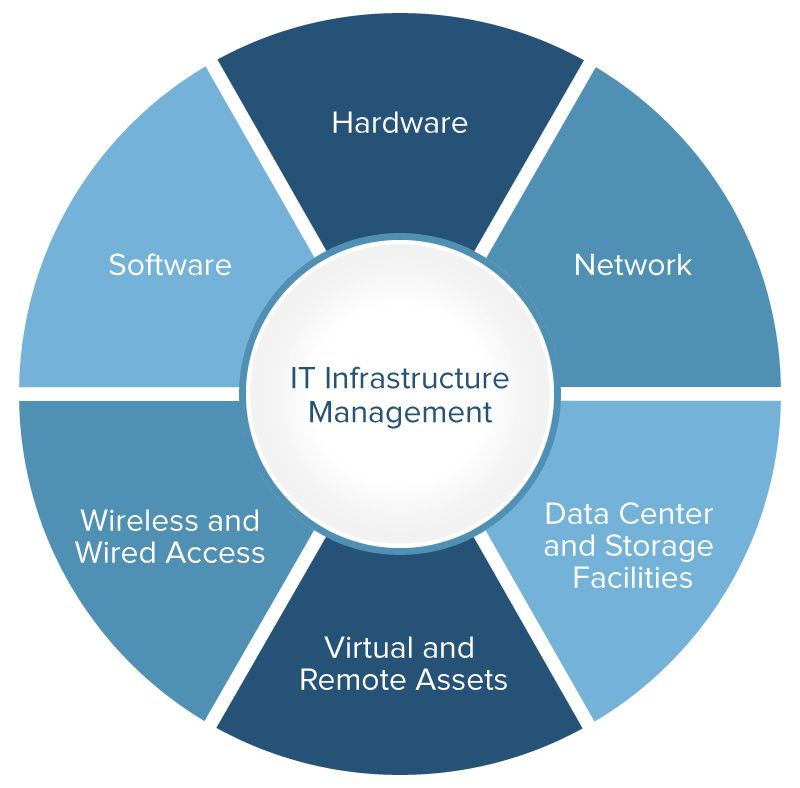Key Elements of a Successful IT Infrastructure Plan
 In today’s competitive business environment, startups and SMEs are increasingly reliant on technology to drive their operations and growth. However, many of these businesses face challenges when it comes to building and managing a robust IT infrastructure. Without proper planning, they may encounter issues such as system downtime, data breaches, scalability limitations, and high maintenance costs. Developing a solid IT infrastructure plan is essential for ensuring that your technology investments support your business goals and provide the foundation for long-term success.
In today’s competitive business environment, startups and SMEs are increasingly reliant on technology to drive their operations and growth. However, many of these businesses face challenges when it comes to building and managing a robust IT infrastructure. Without proper planning, they may encounter issues such as system downtime, data breaches, scalability limitations, and high maintenance costs. Developing a solid IT infrastructure plan is essential for ensuring that your technology investments support your business goals and provide the foundation for long-term success.
Why IT Infrastructure Planning is Important
An IT infrastructure plan outlines the structure and systems required to support an organization’s technology needs. It includes everything from hardware, software, networks, and security measures to data management and storage solutions. A well-thought-out IT infrastructure plan ensures that businesses operate efficiently, remain competitive, and are able to scale as they grow.
For startups and SMEs, a strong IT infrastructure can differentiate success from failure. It provides the backbone for critical operations such as communication, customer service, and data management. However, without a strategic plan, companies risk facing frequent technical issues that can result in business disruption, security breaches, and inefficient use of resources.
Pain Areas Faced by Startups and SMEs
Many startups and SMEs struggle with a variety of IT infrastructure-related challenges. These include:
1. Budget Constraints: Limited financial resources make it difficult for small businesses to invest in the necessary IT infrastructure components. Often, they end up using outdated or suboptimal systems that lead to inefficiencies.
2. Scalability Issues: Startups often underestimate their growth potential, leading to infrastructure that cannot scale. As they expand, their systems become strained, resulting in poor performance, downtime, and increased operational costs.
3. Security Vulnerabilities: Many small businesses neglect security when building their IT infrastructure. This leaves them open to cyberattacks and data breaches, which can cause significant financial and reputational damage.
4. Lack of In-House Expertise: Startups and SMEs often lack IT specialists who can develop and manage a comprehensive infrastructure plan. This can lead to poor decision-making, implementation challenges, and frequent technical issues.
5. Integration Challenges: Many startups invest in various technologies without ensuring they are compatible. This lack of integration can create data silos, slow down operations, and reduce efficiency.
Key Elements of a Successful IT Infrastructure Plan
To overcome these challenges and ensure the IT infrastructure supports growth, businesses must focus on the following key elements:
1. Scalability
A successful IT infrastructure plan must account for the company’s future growth. Solutions like cloud computing offer scalability by allowing businesses to increase or decrease their resources based on demand. Startups should ensure their infrastructure can support additional users, data, and applications without compromising performance.
2. Security
Security should be at the heart of any IT infrastructure plan. This includes deploying robust firewalls, encryption protocols, multi-factor authentication, and regular vulnerability assessments. Businesses must also ensure compliance with data protection regulations such as GDPR or local laws to avoid legal repercussions.
3. Reliability and Redundancy
Downtime can severely affect business operations. A well-planned IT infrastructure should be reliable and include redundancy measures, such as backup servers or power supplies, to minimize disruption in case of system failure.
4. Network Performance
A strong, fast, and secure network is the foundation of an efficient IT infrastructure. Businesses must invest in high-performance routers, switches, and internet connections to ensure smooth communication and data transfer. Regular network assessments should be conducted to identify bottlenecks or potential areas for improvement.
5. Data Management and Storage
As businesses grow, so does their data. Proper data management and storage solutions are crucial for ensuring data integrity, accessibility, and security. Cloud storage options, such as Amazon Web Services (AWS) or Microsoft Azure, provide scalable and cost-effective solutions for managing large amounts of data.
6. Disaster Recovery
A disaster recovery plan ensures business continuity in the event of unforeseen disruptions like natural disasters, cyberattacks, or system failures. It should include regular backups, failover systems, and clear protocols to restore operations as quickly as possible.
7. IT Support and Maintenance
Continuous monitoring and maintenance are essential for preventing issues before they become critical. Businesses should invest in reliable IT support services that offer real-time monitoring, troubleshooting, and regular system updates to keep infrastructure running smoothly.
How APKA Industries Can Help
At APKA Industries, we specialize in providing customized IT infrastructure planning and support services to help startups and SMEs build systems that align with their growth and operational goals. Here’s how we can address the pain points mentioned:
– Budget-Friendly Solutions: We offer scalable, cloud-based infrastructure solutions that are cost-effective, allowing small businesses to optimize their resources without overextending their budgets.
– Future-Proof Infrastructure: Our IT experts work with you to design infrastructure that can grow with your business, ensuring your systems are equipped to handle increased data and operational needs.
– Security First: We help businesses implement robust security measures, from encryption to advanced firewalls, ensuring that your data is always protected.
– Ongoing IT Support: With our IT support services, your infrastructure will be continuously monitored and maintained, minimizing downtime and resolving issues before they impact your operations.
– Data Management and Recovery: We offer tailored data storage and disaster recovery solutions, ensuring that your business remains operational no matter what challenges arise.
Conclusion
A successful IT infrastructure plan is essential for the long-term success of any business, especially startups and SMEs.

